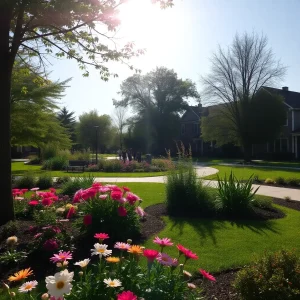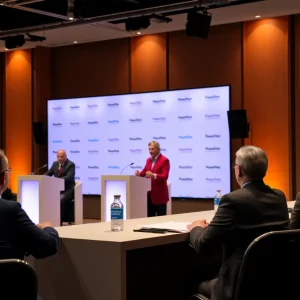Birmingham Water Works Explores $120 Million Automated Meter Upgrade
Birmingham, AL – The Birmingham Water Works (BWW) is taking significant steps toward modernization, as its executive committee met last week to discuss a potential investment of $120 million in an automated metering infrastructure (AMI) system. This new system aims to replace the current meters that are read manually, which has led to frustrations among customers due to billing inaccuracies.
The AMI system is designed to automatically read customer water meters, providing accurate real-time data on water consumption. This change addresses complaints from residents regarding missed bills and unexpected high charges resulting from mass estimations. According to BWW officials, implementing self-reading smart meters has proven effective in improving customer billing accuracy in other water systems across the metro area.
Key Benefits of the New System
BWW officials highlighted several advantages of switching to an automated system. Not only would it improve billing accuracy to nearly 100%, but it would also enhance the utility’s capacity to detect leaks in the distribution system more promptly. “Our Advanced Metering Infrastructure initiative enables us to eventually move away from the traditional manual meter reading process,” stated Tereshia Huffman, chair of the Birmingham Water Works Board. “Above all else, this new system will be more efficient and manageable while improving the customer experience overall.”
Through the implementation of the AMI system, managers anticipate that it could take about four to five years for the entire process to be completed. However, they believe that it could pay for itself over time, minimizing the need for rate increases by reducing costs associated with leak detection and manual meter readings. These costs include staff time for routine readings and re-readings, which currently contribute to operational inefficiencies.
Financial Aspects and Implementation Scenarios
The proposal, laid out to the executive committee, estimated the capital expenditures to be $119,328,050. Management has been tasked with considering three different implementation scenarios, and they aim to present a recommendation to the board within this month. A crucial point raised by staff during the meeting was how to minimize customer and service disruptions as the new meters are installed.
Birmingham Water Works, which was founded in 1951, serves around 770,000 residents across Jefferson, Shelby, Blount, St. Clair, and Walker counties. The utility operates four filtration plants and a certified testing laboratory, managing over 4,000 miles of pipeline in its extensive distribution network.
A Positive Move for Birmingham Residents
Many community members are hopeful that these changes will lead to a more favorable relationship with their water utility. With past issues of billing inaccuracies causing unrest among residents, the proposed changes could signal a new era for BWW. As the board moves forward with its decision-making process, the community eagerly awaits further details on when these transitional improvements could begin and how they will impact their daily lives.
As Birmingham Water Works continues to weigh the benefits and logistics of implementing smart meters, the emphasis remains on improving customer experience and operational efficiency for the extensive network serving the Greater Birmingham area. Keep an eye on future board meetings and public announcements for additional updates on this initiative.



























